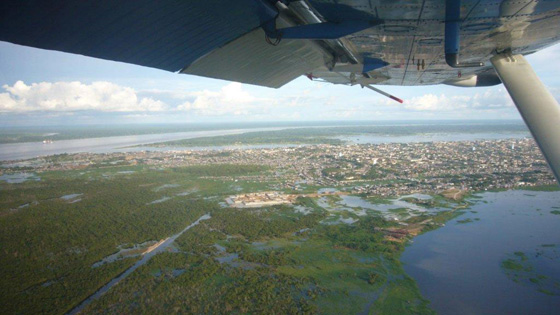
One of the most fundamental human needs is clean water. Yet, most of the people who live in the Peruvian rainforest don’t have access to potable water. This means that diseases such as cholera, leptospirosis and hookworm are still a dangerous fact of life in the Amazon Basin. For the 400,000 residents of Iquitos, the largest city in the Peruvian rainforest and the capital of the Loreto Region, the improvement of the water supply is of critical importance as it seeks to benefit from a wave of sustainable tourism that is expected to follow the election of the Amazon as one of the New7Wonders of Nature.
The good news for Iquitos is that the construction of a new water treatment plant with a capacity of 60 million litres per day is well advanced, as is the building of two reservoirs each with 2,500 cubic metres capacity. The project is a joint venture between the Programa de Apoyo a la Reforma del Sector Saneamiento and NJS Consultants, a major Japanese engineering consulting firm, specializing in environmental, sanitary and civil engineering. The provision of technology transfer and the recruitment of local staff to take charge of operations and maintenance is a central part of the project.
“Clean water and eco-friendly sanitation systems allow indigenous cultures to flourish within their traditional regions,” said Bernard Weber, Founder-President of New7Wonders. “This in turn means that individuals and communities are better able to determine their own economic interests.”
Iquitos provides one of the most striking yardsticks for measuring the immense expanse of the Amazon in that it is more than 3,000 km from the mouth of the river at Belém on the Atlantic Ocean but is still a major Amazon Basin port. In fact, the Amazon Basin is so vast that Iquitos can be reached only by airplane or boat.

